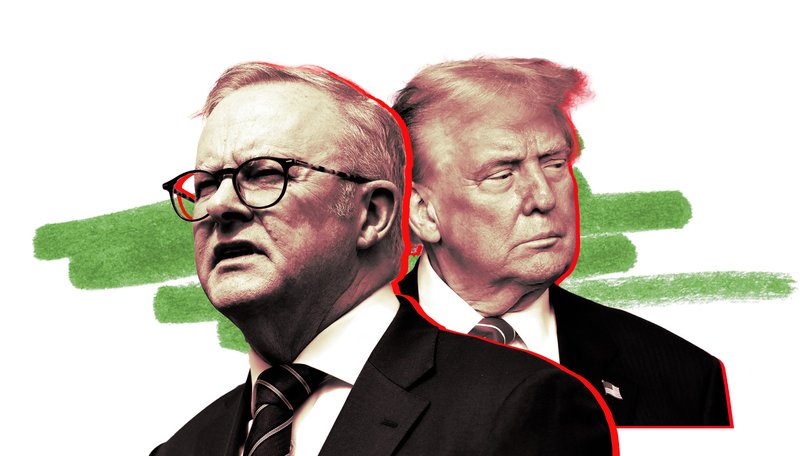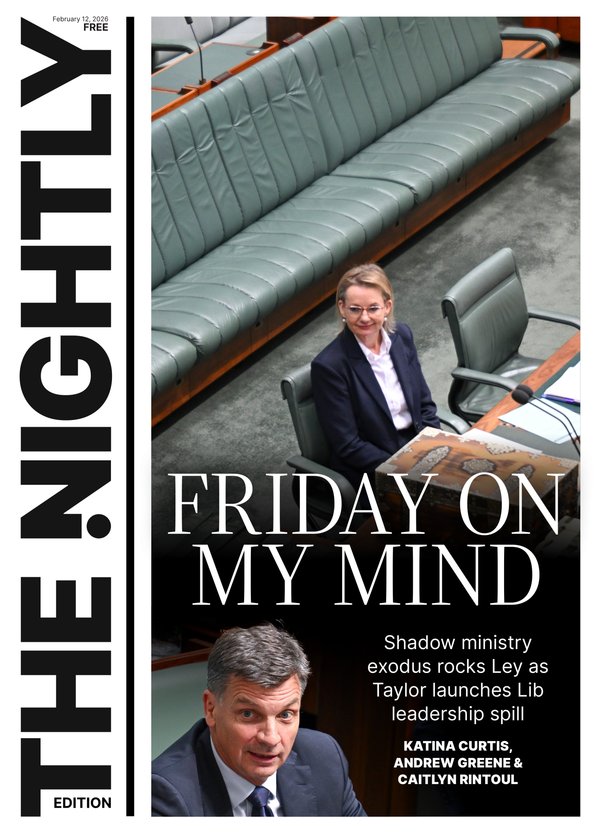MARK RILEY: Peace is Hamas’ enemy because without conflict, the group has no reason to exist
MARK RILEY: The Middle East is a complication wrapped in a complexity, mired in confusion, and the perils for little players are big.

Anthony Albanese was right this week when he observed that Australia wasn’t a big player in the Middle East.
It’s not.
But he has aligned us with big players.
Sign up to The Nightly's newsletters.
Get the first look at the digital newspaper, curated daily stories and breaking headlines delivered to your inbox.
By continuing you agree to our Terms and Privacy Policy.And he has aligned us against big players at the same time, principally the United States.
That is risky.
Albanese says his divergence from the US stance in joining France, Britain and Canada in recognising a Palestinian state is an expression of Australia’s foreign policy independence.
It is.
But it is also an expression of solidarity with many others.
When Albanese formalises the position in his address to the United Nations General Assembly in New York next month, Australia will become the 148th nation to recognise Palestine’s right to sovereignty.
The first 81 did it in December 1988. Among them were China and Russia. Both are members of the UN Security Council’s permanent five.
That is important.
Each member of the P5 has the right of veto over any General Assembly resolution.
France and the UK are also P5 members.
But so is the US.
And it seems Donald Trump intends to veto Palestinian recognition.
So what’s the point? Albanese, Emmanuel Macron, Keir Starmer and Mark Carney would say it’s about building international pressure on Israel to cease its military operations and seek a lasting peace with the Palestinians.
But it would be foolish to view Australia’s disagreement with America in isolation to everything else going on in our bilateral relationship.
In international affairs, everything is connected to everything else.
Retaliatory rumblings have already begun to emerge from Washington about AUKUS, tariffs and defence spending expectations.
The White House’s chief diplomat, US Secretary of State Marco Rubio, gave Australia, France, Britain and Canada an undiplomatic slap this week.
He labelled their decisions as “largely meaningless”, accusing each of playing domestic politics on a crucial international challenge.
“The truth of the matter is that the future of that region is not going to be decided by some UN resolution,” Rubio said.
“It’s not going to be decided by some press release by a prime minister or a president from some country. It’s going to be decided on the ground.”
But what is happening on the ground is Albanese’s chief concern.
More than 60,000 Gazans have been slaughtered in retaliation for Hamas’s massacre of 1200 Israelis in the October 7 attacks.
The UN’s agencies estimate that more than 200 Arab children have died of starvation as a result of Israel’s aid blockades.
Albanese evidenced the climbing death toll and the asymmetric nature of the conflict when he announced Australia’s intention to recognise Palestine.
He also insisted that Hamas could play no role in any future Palestinian Authority.
That was questioned on Wednesday, though, when Nine Newspapers published comments purportedly from a co-founder of Hamas, Sheikh Hassan Yousef, praising Albanese’s “political courage” and calling on other countries to follow Australia’s lead.
That caused a political storm here until Hamas disowned those comments yesterday. It said they couldn’t have come from Yousef. He has been locked away in an Israeli prison for the past two years without any means of communication.
Opposition Leader Sussan Ley had already leapt on the original report, claiming it proved that Albanese was “making a real mess” of his Middle Eastern policy.
But Albanese suggested it was Nine and the Opposition who were really making the mess.
He said the incident should act as a warning to the media “of being very careful about the fact that Hamas will engage in propaganda”.
But so will Israel. Its view is close to that expressed in the now-disputed Hamas statement, accusing Albanese of playing into the terror group’s hands by recognising a Palestinian state.
The Prime Minister’s response? He says Hamas doesn’t want a two-state solution. It wants a one-state solution: the destruction of Israel.
And he is right.
Peace is Hamas’ enemy. Without conflict, the group has no reason to exist.
That was a big part of its motivation on October 7. Regional leaders were getting too close to a sustainable peace deal for Hamas’ liking. So it chose destruction over détente.
There is no simple solution here.
The Middle East is a complication wrapped in a complexity, mired in confusion.
And the perils for little players are big.

